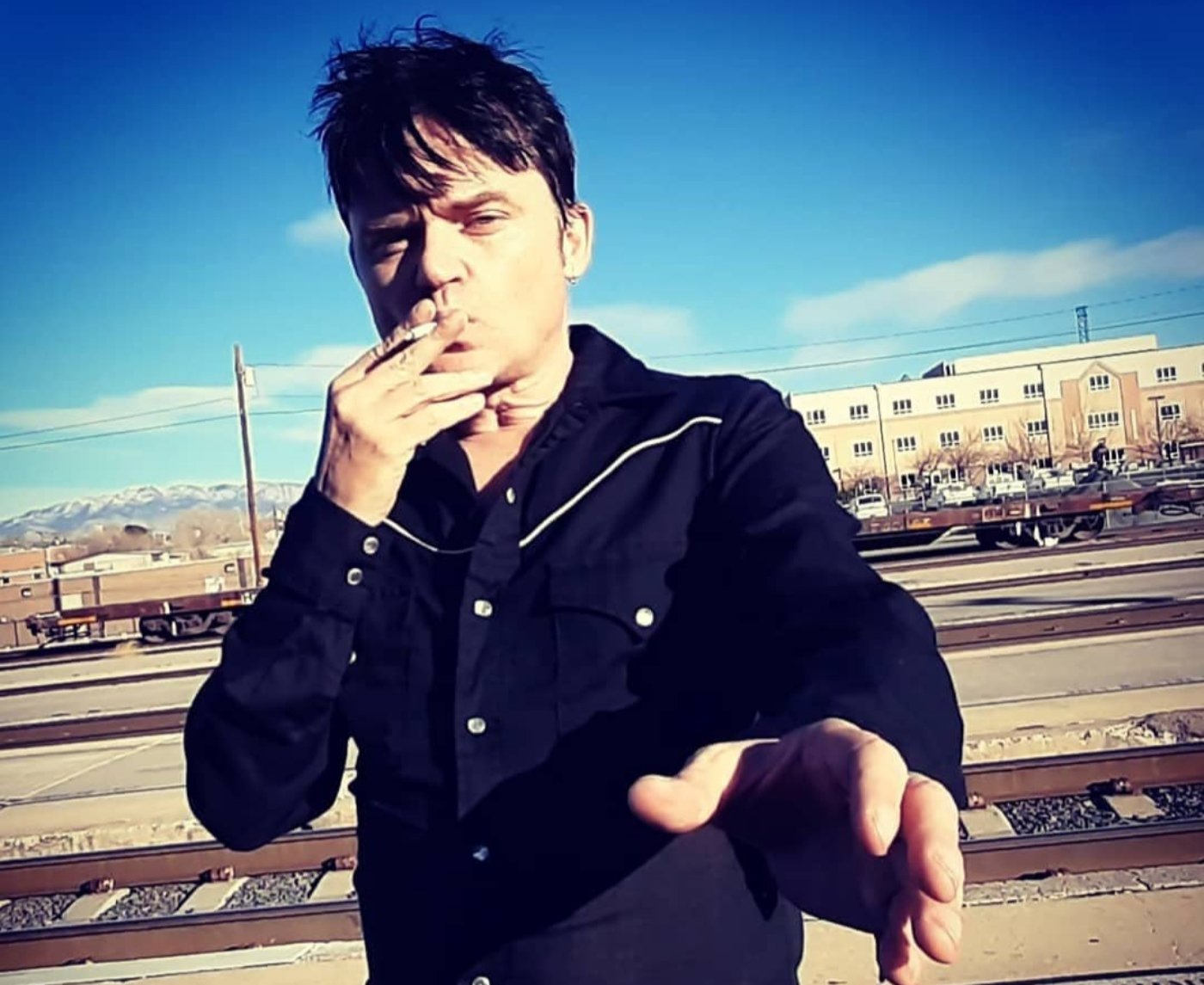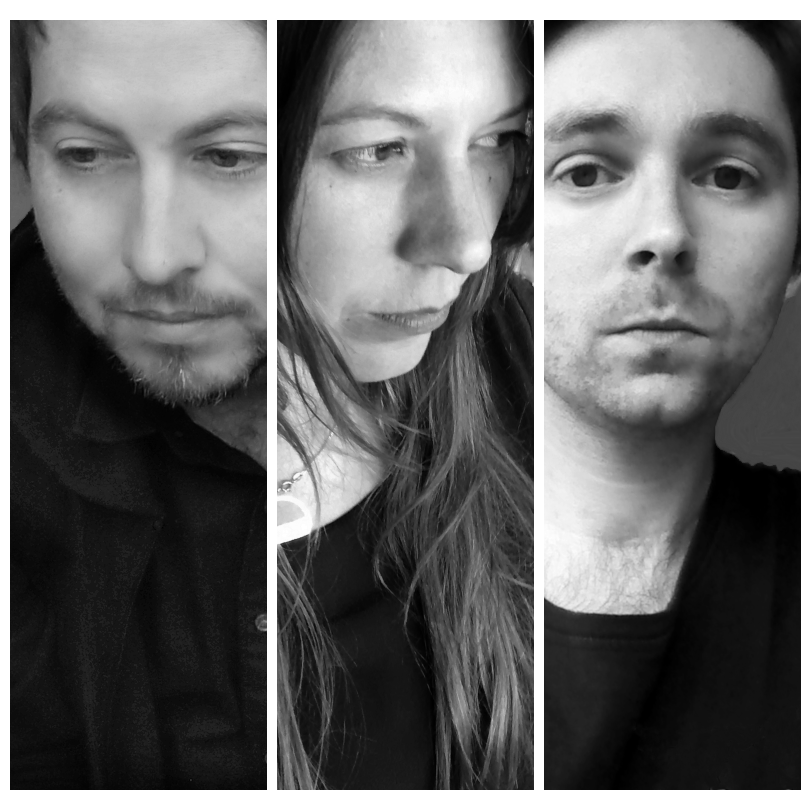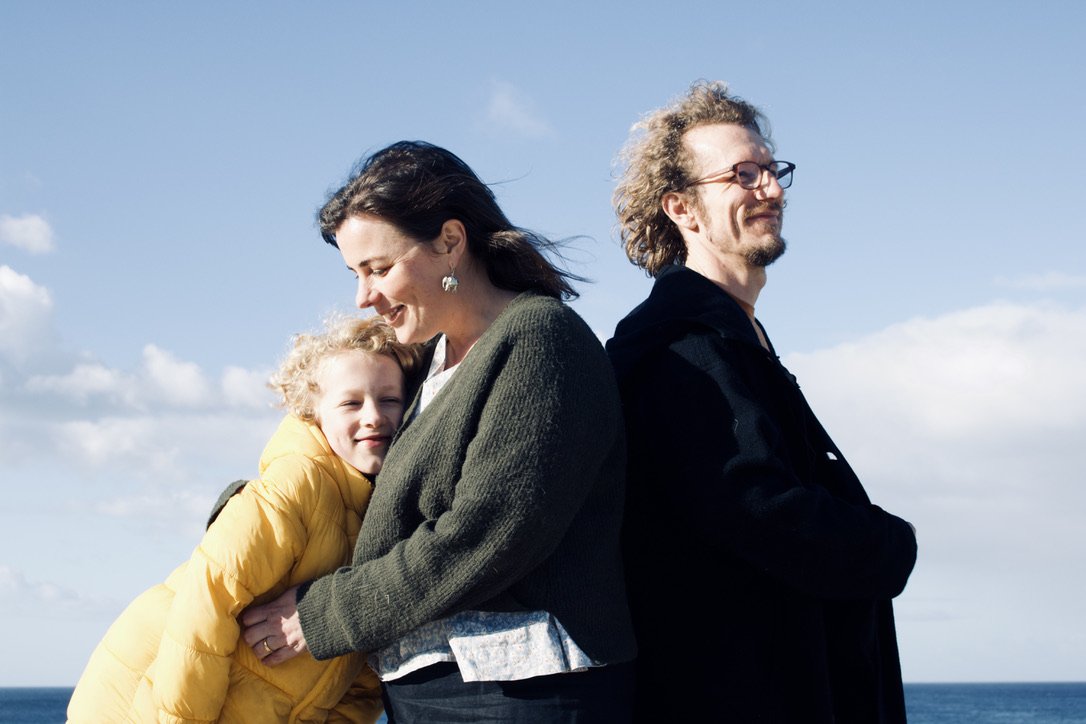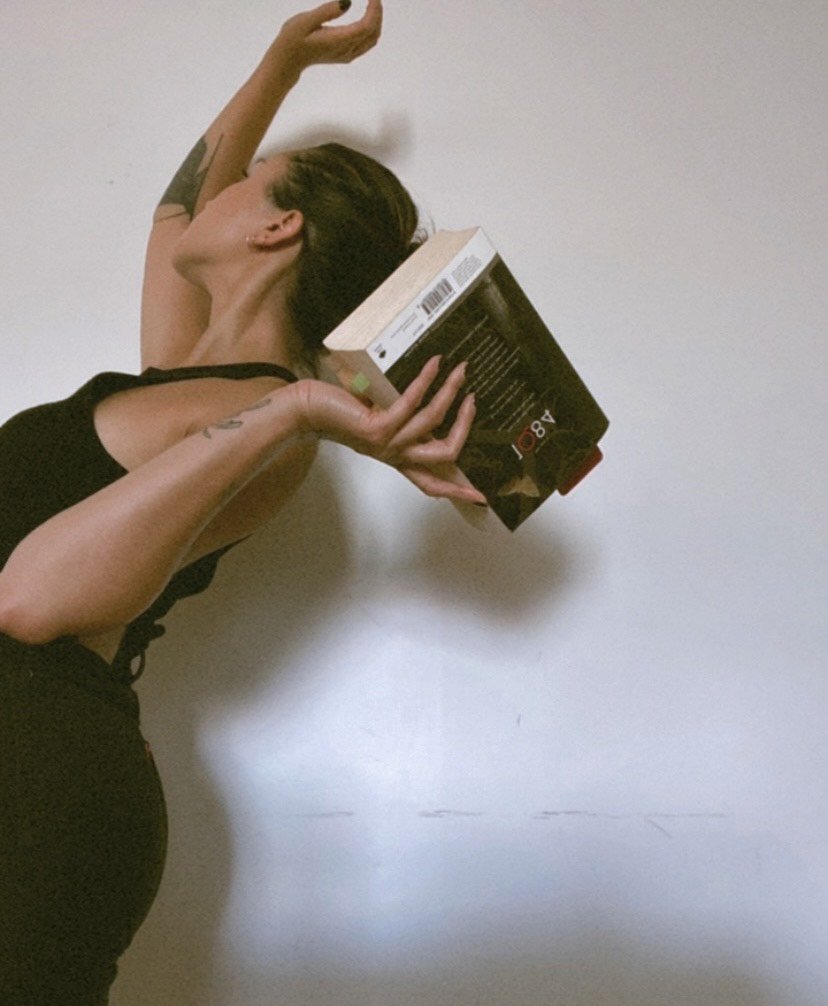[Profile] Ilena: Interview + Playlist
KATIE BROWN - 6 AUGUST 2021
PHOTO: TOM DENIZE
Imagine a musical world calling to mind classical works of art and literature as a kind of abstractly-modern digital impression of them, and you’ll have envisioned the work of UK-born, Auckland-based musician and producer Ilena (Ilena Shadbolt). In terms of sound, if you were to cross the digital art-pop expressionism of Grimes with the inventive approach of Björk, Caroline Polachek’s clever alt-pop and the glassy synth-pop edginess of POLIÇA, you’d land pretty near the delicate and intricate works that Ilena creates. Releasing her sophomore album Lossless in early June this year just seven months after her intriguing debut LP Protostar in November 2020, she’s constantly evolving and establishing herself within her own genre-bending realm, crafting ethereal concoctions that she aptly describes as “poems with three-dimensionality”.
That’s exactly the sense listening to her work evokes: there’s a clever abstraction of both words, melody, instrumentation and arrangement that is immersive and mesmerising - and unexpected. Her songs each call to mind their own poignant world, and they translate as a kind of alternate dream-sphere or a daydream; the random pattern thoughts take as they meander through the ins and outs of the situations life throws into our paths. Asking something of their audience in just the same way as does a poem, which invites its reader to bathe in it and through the bathing to absorb it and its meaning, the songs are cleverly veiled examples of Ilena’s poetic artistry.
A multi-faceted creative, Ilena has been writing poetry since the tender age of 6 and is also a classically trained singer, writing her own music since her early teens and releasing her first EP Low Burn in 2017 at just 16 years of age. She produces and engineers her own music and is currently undertaking Parachute Music’s Producer Development programme while on a one-year hiatus from art school, where she is pursuing study in fine arts, literature and film.
An exceptional artist brimming with potential, she is one to watch.
Read our interview with Ilena below, and find a playlist she has curated for your listening pleasure immediately following!
Follow Ilena on Instagram | Facebook | Spotify | Apple Music | Soundcloud
KATIE: WHAT MUSIC WAS PLAYING IN YOUR HOUSEHOLD GROWING UP? DO YOU THINK THIS HAD AN INFLUENCE ON YOUR CURRENT STYLE?
Ilena: I knew this question would come up someday… I've read interviews where people talk about their classical musician parents or a parent who would always be playing records from their vinyl collection. Honestly, my household was not particularly musical. My dad liked to play the Bladerunner soundtrack or U2 when we drove to school. My mum would play Bette Midler in the kitchen, but that was essentially the extent of my parents' musical tastes. Neither played instruments, but they were the best facilitators for my pretty random inclination- all things considered- for music. They encouraged me to have singing and music theory lessons growing up.
I was aware, on the periphery, that my extended family was musical. My mum's family is Irish, and she would tell my brother and I about the men in her family that would sing and play guitar (and cry) at big family gatherings. These were always a very emotional (read: Irish) affair. I never knew that side of my family well, having moved to New Zealand when I was six. My awareness of this background and mum's eagerness to play 'She Moved Through The Fair' at any given moment did, however, leave an impression on me.
WHEN DID YOU START WRITING YOUR OWN MUSIC? WHAT LED TO THIS?
I wrote my first song when I was 11 or so. A family friend had just gifted me her old nylon-string guitar and I'd learned the A, C, F and G chords. I was determined to make a song and impassioned by having a tool to do so. It hadn't crossed my mind to write a song before, even though I'd been writing poetry and singing for a while (yes, I too wrote poetry since I was six, like every singer-songwriter to exist). But…now I had something in my hands that made sound! I made a couple of songs around that period. They were sweet. I never formally learned the guitar as I just taught myself tabs and chords as I came across songs that I wanted to play. But these first inroads made me realise that I could yoke together my love of writing and singing.
HOW DID YOUR CLASSICAL TRAINING AS A SINGER INFLUENCE YOUR MUSIC?
When I was in primary and secondary school, I had singing lessons most weeks. I took voice exams up until grade 6. It was usually classical and folk style-singing. There were some hapless ventures into Broadway musical territory, but it wasn't for me. This training helped me understand that the voice can be treated as an instrument and honed as such; it wasn't enough- at least, for my purposes- to rely on whatever came out of my mouth when I was singing around the house. I learnt techniques to allow my voice to go higher or lower than it previously could and ways to pronounce vowels to make them more precise. Things like that. I forgot about much of this for the past few years because I stopped when I was 14 or so. A lot of these little tricks have come bubbling back out of my subconscious recently and I've been trying to deliberately implement them when I sing.
WHO ARE YOUR FAVOURITE ARTISTS, AND WHO DO YOU SEE AS BEING INFLUENTIAL IN YOUR OWN MUSICAL JOURNEY AND SOUND?
It's hard to answer this question directly because I'd divide my answer into artists that influence my sound and artists that I like listening to. I enjoy spending nights listening to lots of songs from different genres whenever I feel that I'm getting stuck in particular music channels. I like to catch a wisp of inspiration from a wide range of genres- like trying to emulate a synth from a Portishead song against percussion that sounds like Against All Logic.
In terms of artists who influence my sound, I'd have to give it to the trinity of The Japanese House, Grimes and Caroline Polachek. The second tier down would be artists such as Oklou, Clams Casino and Crystal Castles. Marika Hackman, Fiona Apple and Wolf Alice influence me lyrically but perhaps not so much their sound. And then there's a whole range of other stuff that I love- it's fun to trawl SoundCloud and listen to obscure artists making just…weird music. I'm listening to much more New Zealand artists this year. There are so many innovating young artists here, and it's encouraging to know that there is an interesting and varied scene, even if relatively small.
The list goes on, but I can't not mention Björk, FKA Twigs, Okay Kaya, Burial, Patti Smith, and Imogen Heap!
'LOSSLESS' IS A FANTASTIC TITLE FOR AN ALBUM, AND ITS SIGNIFICANCE WON'T BE LOST ON THOSE FAMILIAR WITH AUDIO COMPRESSION! WHAT DOES IT MEAN TO YOU?
Firstly, it means being without loss. That even though I lose people- whether that be friendships, relationships or mentorships- it's not really loss. People are additive. You always learn something from a connection with someone. Some people thread through your life for a bit and weave back out- and maybe back in again, but maybe not! And that's okay. And you cannot lose memories. No matter how many years stack up, you were still at that place with those people on July 12th, 2018. The Photos app loves to remind me of that, haha.
It also means being without loss in myself. I've had some tumultuous years feeling as if I lost my ambition, creativity, and sense of self. I mourned previous versions of Ilena that used to be so onto it. Realising that person is still me took a while. I guess what I'm trying to say is that I felt lost on the journey and conflated that with having lost myself.
I also liked the word 'Lossless' for its mirrored quality. Maybe this only makes sense to me, but 'loss' and 'less' are almost the same word. My brain related it to the '20' and '21' of '2021'. If '2020' was 'lossloss' (read: feeling like I had lost a lot), then 2021 is 'losslEss.' That's character development, baby!
For those not familiar with audio compression, 'lossless' describes a compressed audio file that has not had its detail destroyed in the compression process. I thought this was a fun reference to have as this album actually went through a mixing and mastering process. My production is also getting better as I learn more, so I'd hope that the original file would have more detail to not destroy.
The many reasons for choosing this album title reflect the intricacy I try to put into my creative choices. Most lines in my songs have many layers of conceptual meaning on top of the literal. I make a lot of references to poetry, art, and music. Even if no one else notices, I like watermarking my work with what I've been consuming. In this album, there are references from Shakespeare, to Sylvia Plath, to Hannah Diamond. Give me any line, and I'd probably launch into a long-winded breakdown of its significance. I don't know why I like to make everything so loaded with meaning- maybe it's my love for English coming through. I like to think someone could write a great essay about any of my songs.
THE STYLE AND FEEL OF LOSSLESS COMES ACROSS LIKE BEING CAUGHT IN A DREAM WHERE REALITY AND A SORT OF FANTASTICAL ABSTRACTION COLLIDE: WAS THIS INTENTIONAL? HOW DID WHAT YOU WERE EXPERIENCING IN LIFE TRANSLATE ACROSS INTO THE ALBUM?
Interesting take… perhaps the reality/abstraction collides in the vagueness of my lyrics. My lines are quite directly about something, but I get nervous to write straightforwardly about real-life events. I use pronouns very interchangeably. Often I'm saying 'you' when it really means me. Sometimes I write from the perspective of someone else talking about me. Sometimes I refer to myself as 'she.' I like how this leaves things open to interpretation.
On the one hand, I hope that makes them more mappable to others' experiences and therefore more relatable, but on the other hand, I want to be more concrete in my writing. I've had people believe that my songs are about something entirely different from what I intended- such as thinking a song is about a relationship when it's about my failings as a friend. I don't mind, though. Once you've released something, it's in the listeners' hands.
My songs also tend to be internally scattered in their subject matter. I don't write songs with specific themes in mind but rather bounce around from one idea to the next. I like this because it feels more diaristic. It reflects how you think, where throughout any one day, a thousand unrelated thoughts flit through your mind. At the same time, the overall cohesion of my songs' lyrical content is something I want to work on so that the intention and feeling I want to leave with people is more explicit.
Reality and abstraction also collide through my attempts to work within a pop framework whilst being experimental with my production. If you conceive pop as 'reality', and my production- with all its weird voice blips, metallic percussion and cinematic synths- as 'abstraction', I guess they do collide! I don't think my music is anywhere near weird or experimental enough...yet. I want to get more whacky.
YOUR SONGS ARE INCREDIBLY INTRICATE AND DETAILED. HOW DO YOU APPROACH YOUR ARRANGEMENT?
It's all about fumbling and tinkering around until something clicks. Usually, I make a rough sketch of the whole song, or at least the first verses and chorus, riffing off a nice synth or piano loop that I like and then copy-pasting that into some kind of structure. Then I get stuck on verses and get insecure about my choruses. Yay! And then somehow, it works out. Later I'll change up some of the percussion or chords that I've copied to make it more organic or better complement the rhythm of my singing. My favourite part is the decorative process at the end. Once I have a song's impression down, I go back and add in all the fun little ear candy production moments. It feels like whittling down a marble slab into a hyper-realistic statue.
YOU'VE GROWN UP WRITING POETRY: DOES THIS WRITING PROCESS SHIFT ACROSS INTO YOUR MUSIC? IS THE APPROACH TO BOTH THE SAME?
It's synonymous. My writing catalyses my music and my drive to make music catalyses my writing. I'm led by writing first, even though the whole Gestalt is about how everything meshes. I try to make my songs feel like poems with three-dimensionality. It's hard to perceive tone when words are just written on a page, but a song gives them inflection.
I'm continually writing in my Notes app, even if it's just a phrase that goes through my head when waiting at a crossing. I have a journal that I've been writing physically in the past few years (which is now almost full! Have to start another one), and I've been enjoying setting aside time to write in that. I used to just write on my laptop or phone, but writing in a diary has made me more honest as I can't delete or rearrange things to the extent that I can on a screen. I'm also trying to write in my diary without limit or care for how 'poetic' it sounds.
Having said that, my lyrics are not always premeditated. Once I've laid down an instrumental, I sing nonsense in the hopes of finding a melody. What I think is nonsense at the time turns out to be what's on my mind, said simply and in the moment. The nonsense becomes the lyrics, and I like that spontaneity. It stops me from being too overwrought and gives things more immediacy.
PHOTO: TOM DENIZE
YOU'RE CURRENTLY ON PARACHUTE MUSIC'S PRODUCER DEVELOPMENT PROGRAMME. WHAT HAS THIS EXPERIENCE BEEN LIKE SO FAR, AND WHAT DO YOU HOPE TO SEE HAPPEN WITH IT THROUGH THE REST OF THE YEAR?
Yeah! So the programme is an almost year-long and there are six of us on the Producer Development programme. We get time each week to use the studio, have production challenges each month and co-write with the people on the artist development programme. We each have a mentor- mine is Amelia Murray, who performs under Fazerdaze. It's great to have that regular dialogue with a woman who is an artist and producer like myself.
It's been really, really rewarding thus far, and exactly what I needed for this point in my life. It's like the midway point between going to music school and being freelance- we have listening parties where we give feedback on what we've all been making, but there are no grades. Pausing my studies to do this for a year has given me a chance to preview, within the safety net of a course, if music is something I can envisage myself doing full time.
It's also rewarding to be in a studio not just for the soundproof room and equipment but for the chance to meet and continually see other musicians. Every time I make myself a coffee I get to talk to someone new. Being amongst people who are passionate and knowledgeable about music is refreshing, coming from making music in my room as a night-time, cathartic hobby. Being chosen for the programme and having a place to facilitate what I enjoy doing is validating. There are so many approaches to making sounds sound good, and it's easy to get stuck in one way of making music, so watching and absorbing what and how others make has been so helpful.
YOU'RE ALSO STUDYING LITERATURE, FILM AND FINE ARTS, ALTHOUGH YOU'VE PAUSED THESE STUDIES FOR THE YEAR IN ORDER TO FOCUS ON THE PRODUCER DEVELOPMENT PROGRAMME. WHERE DO YOU SEE YOURSELF HEADING WITH THESE VARIED PURSUITS? DOES ONE CALL TO YOU MORE THAN THE OTHERS, OR DO YOU THINK THEY'LL ALL END UP WEAVING THEMSELVES TOGETHER?
Don't ask me; I don't know what I want to do with my life…
I've never been drawn to one particular field, and I admire others who just know that they want to pursue and hone, say, medicine, or anthropology, or art. I took sciences, humanities, mathematics and art until Year 13. Outside of school I liked to act, make music and films, and write. I couldn't even settle on one thing for university. Hence the conjoint degree. And that still didn't feel like enough.
For a while, I thought that I had a fear of committing to a particular thing (that's it! You've chosen your path! You're stuck there for life!), but I'm now realising that it might be because all my interests have an intersection. Being an artist and a producer seems to be just that. An artist project creates a universe where my poetry can live. I can perform (that ticks off acting), and make music videos (that ticks off art). Learning more about audio engineering satisfies my more logical, technical brain.
WHERE DO THE VISUALS FOR YOUR WORK COME FROM? WHAT'S YOUR RELATIONSHIP TO THIS VISUAL SIDE?
I am studying fine arts and arts, but my degree is structured so that the first few years are primarily fine arts rather than English and screen production. Visuals are important to me, and I try to apply the same concern for conceptual significance that they teach us.
So far, I don't think I've given quite enough attention to visuals as I'd like to. Sure, it's all aesthetically matching but my album cover was pretty off the cuff. I made it in Photoshop one day and trialed a few different versions. I painted the title with ink and scanned it in to my computer. The picture is an image that I took of the space between stacked metal chairs which I mucked around with and inverted (hope that doesn't spoil it). The lead-up imagery on my social media consisted of other metallic objects that I'd photographed and inverted. I liked how alien this made them- familiar objects made unfamiliar.
My friend and fellow Elam student Alex Su filmed, edited, and made the renderings for my music video. My idea for it was very clear and I had his art in mind for it. So I'm glad that he was keen to work on it! He completely fulfilled that vision and more. My friend Tom Denize took pictures of me. I think working with friends and people on a similar level is important and produces great stuff.
I've always been a very DIY person, thinking that I need to do everything by myself, but having met more people whose art I love, and basically just growing up, I'm recognising the value of collaboration, . In whatever I release next, I want to valorise the visual side and have more people on board to help. It's so fun to have multiple brains thinking away on the same thing.
PHOTO: TOM DENIZE
BEING AS MULTITALENTED AS YOU ARE, YOU MUST OFTEN FEEL PULLED IN MANY DIFFERENT DIRECTIONS AT ONCE. HOW DO YOU KEEP THIS ALL IN BALANCE?
You flatter me! Basically, by giving time to whatever I'm interested in. If I'm doing a unit in painting at university, I'll focus on that. If I'm trying to get better at my French, I'll practice my verbs when it's not busy at work.
Whenever I need a break from intellectualising everything and feeling like I'm failing to be productive, I run. As a creative person who is always striving for something bigger than myself, running makes me focus on my immediate physicality. I might spend ages trying to chase a feeling of breathlessness making a song but running quickly and literally takes my breath away. It's something I've done competitively since primary school, but I do it for fun these days. When I'm not running regularly, I feel mentally and physically sluggish. Paradoxically, running is a space where I can blank out but often ends up being where I clarify my thoughts and come up with phrases that I have to stop and write down if I have my phone or try to remember until I'm home. Guess I can't escape it.
WHAT WAS THE LAST ALBUM YOU LISTENED TO THAT TOOK YOUR BREATH AWAY?
Maybe I'm just a fake musician, but I’m not usually an album person. Unless every song on an album is great, I tend to add individual songs to my playlists, even if that means practically adding every song from an album but skipping two. I do love Oklou's 'Galore' from last year, though. It's digital with its autotune and synths whilst being organic with animal and atmosphere sounds and guitar. Her songs are always on my regular rotation.
Ilena’s Playlist for The May Magazine
A selection of Ilena’s inspirations and favourites






![[Friday Feature] Valere: Interview & Review of Single/Video ‘Lily’s March’](https://images.squarespace-cdn.com/content/v1/60df978127837427ee475bb1/1712873492906-GFSK6SW4FJ2Z2STOJVAM/Valere+-+Photo+Credit+Hayden+Graham+%281%29.jpg)

![[Video Premiere] Sig Wilder & Friends: Video for ‘Texasman’ + Interview](https://images.squarespace-cdn.com/content/v1/60df978127837427ee475bb1/1699397388451-3GDFG0FOA5T5WPA33ANE/IMG_2393.JPG)


![[International] Jackson VanHorn Releases New EP ‘Liminal Music, Vol. 1’](https://images.squarespace-cdn.com/content/v1/60df978127837427ee475bb1/1695708847770-UF5H8G2X7N9Q9KF22TA5/Jackson+VanHorn+Liminal+Music+Vol+1.jpeg)

![[Friday Feature] Jazmine Mary: Interview + New Album ‘Dog’](https://images.squarespace-cdn.com/content/v1/60df978127837427ee475bb1/1686280012940-2OBAFHQ9HIJFIVNYE3CZ/JazmineMary_Album+image+no+text+-+Credit+-+Jim+Tannock.jpg)
![[Video Premiere] Emily Rice Releases New Single/Video ‘Warenoa’](https://images.squarespace-cdn.com/content/v1/60df978127837427ee475bb1/1685044212209-9X8UTD0I22FY3LAGKDHI/Press+Shot_+Photo+Credit%2C+Charles+Looker.jpg)


![[Australia] Benny Time: Interview + New Album ‘Benny and Friends’](https://images.squarespace-cdn.com/content/v1/60df978127837427ee475bb1/1653689671831-U73A00Y16B4PYUPIEY7X/Benny+Time+3596.jpg)











![[International] Alison Clancy: Poised for Greatness](https://images.squarespace-cdn.com/content/v1/60df978127837427ee475bb1/1645751104499-HT5MCDXMERC9SDSW4XW5/Alison+Clancy+Mutant+Gifts+Cover.jpeg)
![[International] Halfway Harbor: ‘Table Stains’](https://images.squarespace-cdn.com/content/v1/60df978127837427ee475bb1/1644389562677-EPD8X84SUDEW0Y5THAX3/HH+Photo+2.JPG)
![[Video Premiere] Rewind Fields Releases Video for ‘Photographs’ from New Self-Titled Album](https://images.squarespace-cdn.com/content/v1/60df978127837427ee475bb1/1645087328492-XGACSPK0JASK6GHYPNJ8/Rewind+Fields+Press+Photo.jpg)


